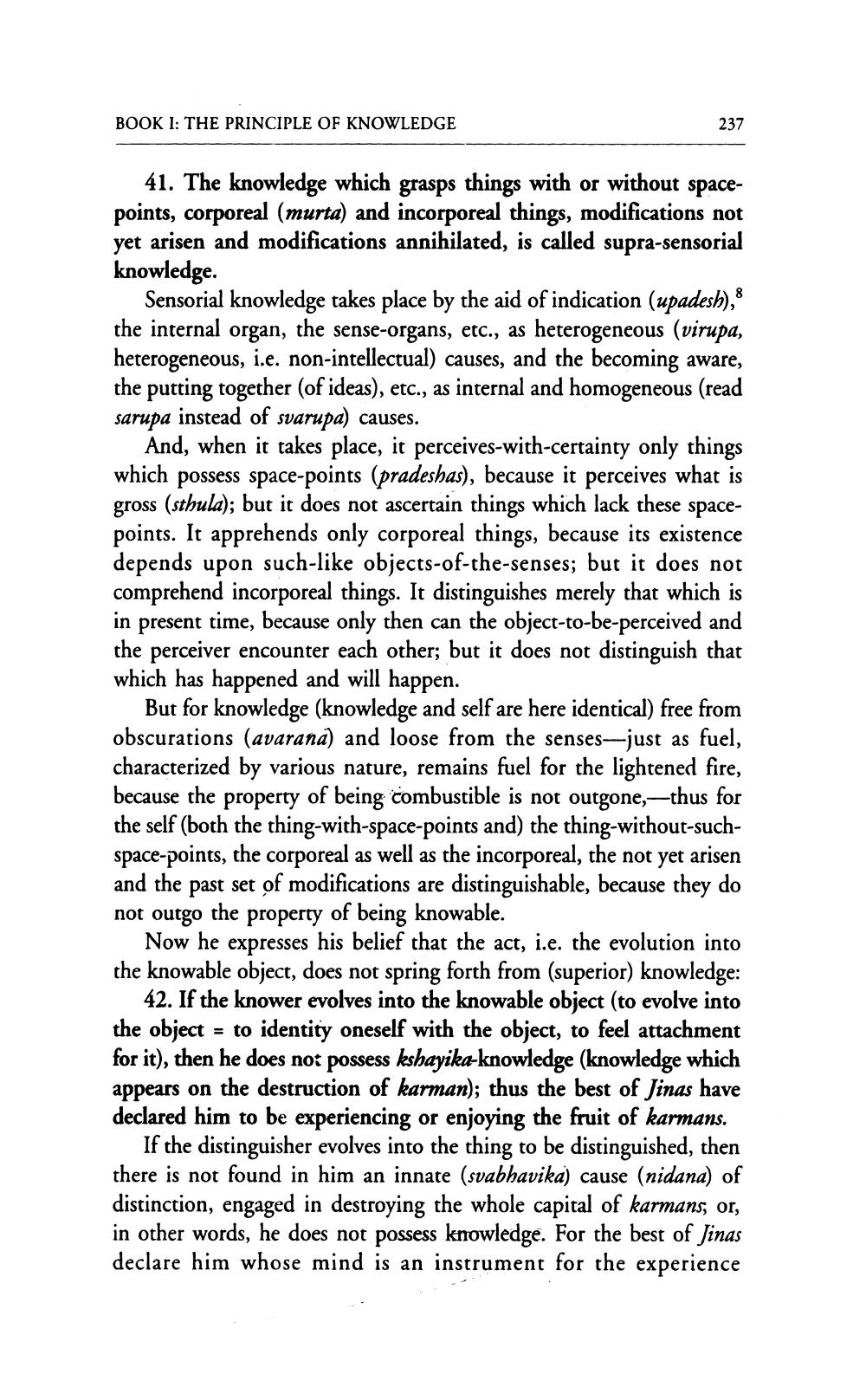________________
BOOK I: THE PRINCIPLE OF KNOWLEDGE
237
41. The knowledge which grasps things with or without spacepoints, corporeal (murta) and incorporeal things, modifications not yet arisen and modifications annihilated, is called supra-sensorial knowledge.
Sensorial knowledge takes place by the aid of indication (upadesh), the internal organ, the sense-organs, etc., as heterogeneous (virupa, heterogeneous, i.e. non-intellectual) causes, and the becoming aware, the putting together (of ideas), etc., as internal and homogeneous (read sarupa instead of svarupa) causes.
And, when it takes place, it perceives-with-certainty only things which possess space-points (pradeshas), because it perceives what is gross (sthula); but it does not ascertain things which lack these spacepoints. It apprehends only corporeal things, because its existence depends upon such-like objects-of-the-senses; but it does not comprehend incorporeal things. It distinguishes merely that which is in present time, because only then can the object-to-be-perceived and the perceiver encounter each other; but it does not distinguish that which has happened and will happen.
But for knowledge (knowledge and self are here identical) free from obscurations (avarana) and loose from the senses—just as fuel, characterized by various nature, remains fuel for the lightened fire, because the property of being combustible is not outgone,—thus for the self (both the thing-with-space-points and) the thing-without-suchspace-points, the corporeal as well as the incorporeal, the not yet arisen and the past set of modifications are distinguishable, because they do not outgo the property of being knowable.
Now he expresses his belief that the act, i.e. the evolution into the knowable object, does not spring forth from (superior) knowledge:
42. If the knower evolves into the knowable object (to evolve into the object = to identity oneself with the object, to feel attachment for it), then he does not possess kshayika-knowledge (knowledge which appears on the destruction of karman); thus the best of Jinas have declared him to be experiencing or enjoying the fruit of karmans.
If the distinguisher evolves into the thing to be distinguished, then there is not found in him an innate (svabhavika) cause (nidana) of distinction, engaged in destroying the whole capital of karmans, or, in other words, he does not possess knowledge. For the best of Jinas declare him whose mind is an instrument for the experience




